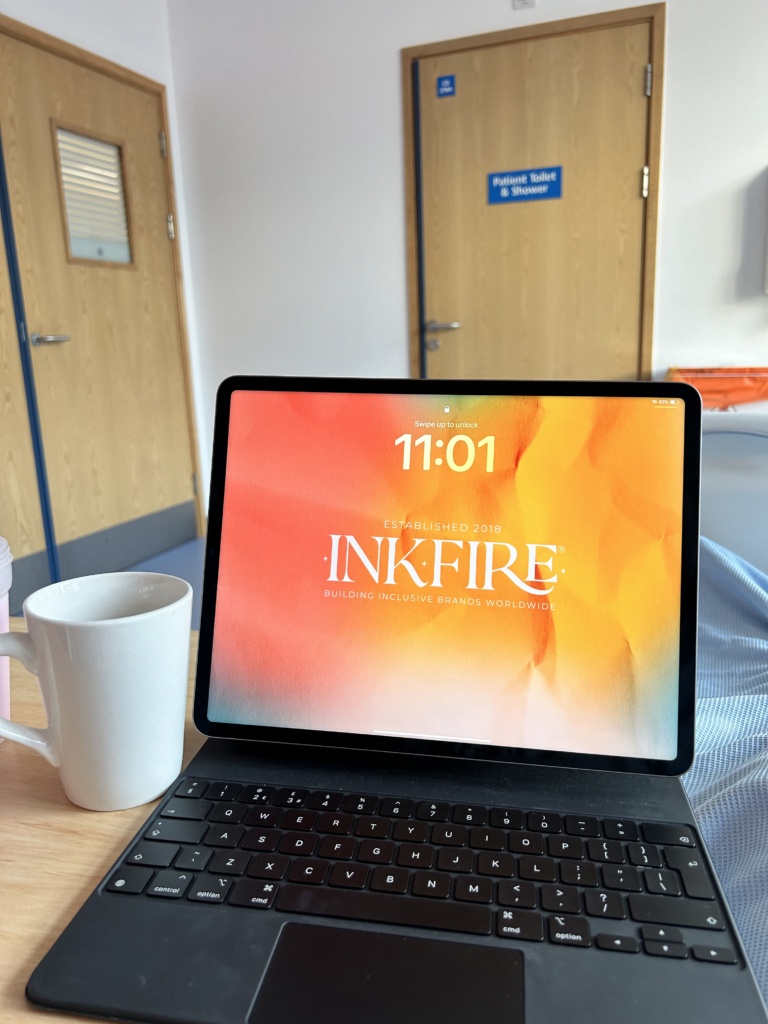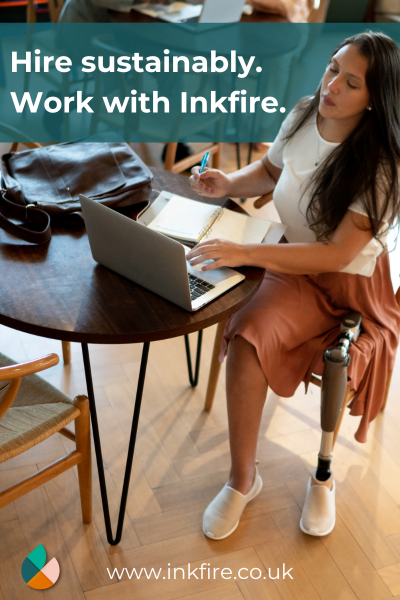This post was inspired by a recent conversation with a dear friend. We were discussing the pressures of work and health, and I realised I wasn’t only one feeling trapped between the expectation to work and a body that often refuses to cooperate.
When society labels you as lazy
In today’s world, productivity and the ‘hustle’ culture are glorified, especially among young people. If you aren’t pursuing your career head first, you should be starting a side hustle. If you aren’t working three jobs, you should be training for the next thing. It’s relentless. For those of us with long-term conditions, we are often perceived as lazy if we can’t keep up. It’s seen that if you’re not working, you’re not contributing and that makes you ‘worthless’ or a ‘burden’. But what happens when your body keeps saying ‘no’ while the world keeps going?
The guilt of not being what people – specifically friends, family and mutuals – want us to be is crushing. We push through pain, fatigue, and flare-ups – just to do something that someone else would do effortlessly. The truth is, we’re not lazy, we’re working harder to survive, but we struggle to thrive.
Unreliable symptoms and the day-to-day living costs
One of the most difficult things to cope with is not knowing what the day ahead will bring in terms of symptoms. You don’t want to be known as ‘the person who misses deadlines’, but how can you possible plan for something that you don’t know until the day or even the hour? If you commit, you’re signing yourself up to the inevitable burn-out that comes from pushing through a flare to keep to a date… often resulting in days or weeks of recovery.
Then there’s the financial side. The cost of living in the UK is sky-high, and bills don’t stop just because you’re unwell or in hospital. Rent needs paying, food needs buying and the cost of additional things you might need like carers and medical equipment stack up. It becomes a vicious cycle: you need to work to survive, but your illness makes it harder to keep-up. The more you push, the sicker you get, and so it continues.

Lack of understanding surrounding chronic conditions
There’s sadly a striking contrast between how society treats people with life-long conditions versus those with more visible illnesses. For instance, when someone has cancer, they’re often given time, sympathy and accommodations – rightfully so. But when you tell people you have a chronic condition like Arthritis or Ulcerative Colitis – sometimes which are treated with the same or very similar medications – the response is ‘Everyone has something, you’ll find a way.’
Chronic illness often doesn’t come with visible signs, making it harder for others to comprehend. We’re not looking for pity on any level, we need understanding. For many, these conditions are invisible, fluctuating in severity and difficult to explain. Just because you can’t see it, doesn’t mean it isn’t real.
The long term view
According to the Office for National Statistics, In the UK, about 15% of people aged 16-34 live with a long-term health condition. Despite these numbers most of the support available in regards to proper sick leave doesn’t start until you’re much older. Where does that leave those of us who are in our early 20s, 30s or 40s, struggling with conditions that make working a daily battle?
At 23, the thought of pushing through decades of work while managing my ever-growing array of illnesses feels like an insurmountable challenge, yet we’re expected to ‘get on with it’. We’re too young for systems built for the elderly, yet too unwell to work at the same pace as our healthy peers. It’s isolating and demoralising.
Working from home, bed and hospital…
I’ve lost track of how many times I’ve found myself poorly, working my bed, or even worse a hospital bed. Answering emails between treatments, trying to keep up with customers while desperately needing to recuperate. The financial pressure doesn’t disappear when you’re admitted to hospital or experiencing a major flare-up. It’s a never-ending cycle of exhaustion, pushing yourself through work, being too ill to continue and then having to pick yourself up to do it again and again.
Chronic illness isn’t just about physical pain – its about the mental and emotional toll of constantly worrying if you’ll be able to stay afloat, survive. Supporting your family, paying the bills, not letting anyone down.
A call for proper understanding
Working with a chronic illness is a challenge, but it can also be so rewarding. When you do manage to find work that suits you and that you enjoy, it’s so nice to have something to focus on that feels productive.
However, the fact is that although the year is 2024, flexi-working around disabilities remains very poorly managed across the workforce. Chronic illness is a full-time job in itself, yet it comes with no financial compensation, limited understanding and minimal support unless you’re in a very blessed situation.
What’s the point of this post?
Employers – there’s a huge need for you to support people with chronic illnesses better. There’s so many resources out there to help you to do so, why are you not progressing this across the workforce?
Everyone else – this is a call for empathy and change. We need to create systems that recognise the needs of those with chronic illnesses – whether they’re 20 or 40. Things needs to evolve to accommodate everyone, not just the healthy. Society needs to stop valuing productivity over well-being.
No one should be forced to choose between their health and affording to live.
Interested in hearing more about my disabled-led company? Visit our website www.inkfire.co.uk










